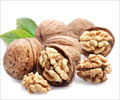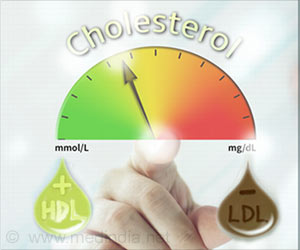More and more research now point towards nuts as an essential in the quest for a healthier heart.
More and more research findings are pointing towards nuts as an essential in the quest for a healthier heart.
Till recently nuts have been blacklisted due to their high content of fat. Yet this fat -specifically monounsaturated and polyunsaturated fat , is now being proved to be associated with heart health. Both of these unsaturated fats have the ability to reduce low-density lipoprotein (LDL), or "bad" cholesterol. Still the key is, moderate consumption.Moderate nut consumption; as little as two servings per week, may ward off heart disease and lower the risk of heart attack according to several findings. One such was part of the Nurses' Health Study published in the British Medical Journal in 1998. The study looked at the health of more than 86,000 women. It found that those who ate 142 grams (five ounces) of nuts per week were 35 per cent less likely to develop heart disease than women who ate less than one ounce per week.
Similarly, after looking at findings from the U.S Physicians Health Study, Harvard researchers found that men who ate nuts two or more times per week were 47 per cent less likely to die of a heart attack and 30 per cent less likely to die of heart disease than men who rarely ate nuts. These findings were published in the Archives of Internal Medicine in 2002.
This is not all. The Adventist Health Study, which examined the diets of more than 31,000 Seventh Day Adventists, found that participants who consumed nuts more than four times per week experienced 51 per cent fewer heart attacks compared to those who consumed nuts less than once per week. These findings were published in the Archives of Internal Medicine in 1992.
Omega-3 fat, a type of polyunsaturated fat found in walnuts, has been linked to a variety of health benefits, such as protecting against Alzheimer's disease and lowering the risk of a stroke. A study published in the September 2007 issue of the Journal of the American Medical Association found that even children with an increased risk of developing Type 1 diabetes could lower their risk by consuming a diet high in omega-3 fatty acids.
Aside from providing a healthy dose of unsaturated fats, nuts are also a source of fiber, protein, vitamin E, vitamin B6, as well as niacin and folic acid. Nuts in general hold as much as 80 per cent fat. Despite the fact that most of the fat found in nuts is the heart-healthy unsaturated kind, it can still add up to a lot of calories.
Advertisement
To start rocking with nuts, here are a few tips. First of all, as mentioned above, nuts are nutrient-dense and are a source of calories in the diet despite their healthy profile. Instead of adding nuts to your diet on top of everything else you eat in a day, replace other less-healthy foods, such as snacks high in saturated or trans fat with them. Canada's Food Guide mentions nuts as an alternative to meat as they are a rich source of protein. Secondly, mind your servings. A serving of nuts is 60 ml, 1/4 cup or about 30 grams. For nut butters, the appropriate portion size is 30 ml, or about two tablespoons (be sure to choose nut butters that don't contain added sugar or fat). Do not eat more than four to five servings per week.
Advertisement
Source-Medindia
ANN/M










